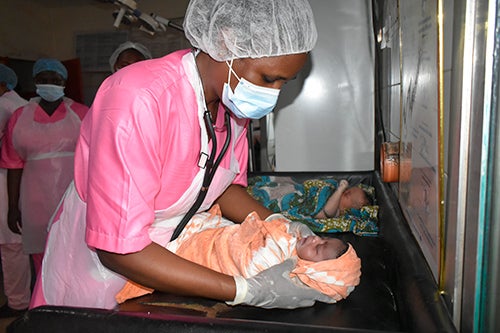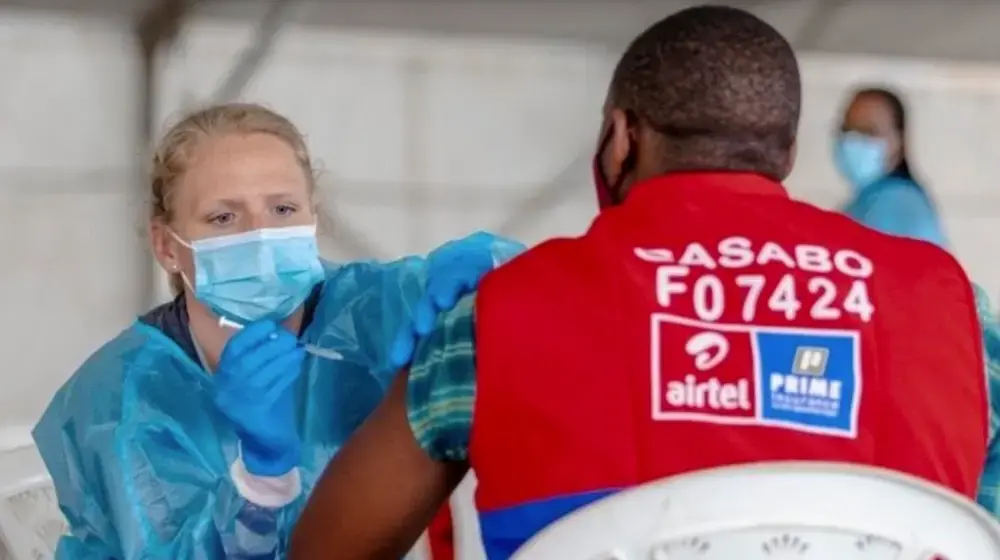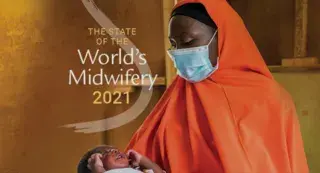ERBIL, Iraq/UNITED NATIONS, New York – “A 35-year-old pregnant woman came to our clinic with abdominal pain,” recalled Hawrin Yousif, a 27-year-old midwife in the Khazir displacement camp in the Kurdistan Region of northern Iraq. “After conducting a medical check-up, I understood that she had been going through early labour for the last five hours and urgently needed to be taken to the maternity hospital in Erbil.”
My heart was beating fast. I knew that these lives were at risk.
An ambulance raced them to the hospital, but the woman’s labour was progressing too quickly. “The mother was so scared and she kept begging me to bring her baby to life safely: ‘Don’t let him die’,” Ms. Yousif said. “My heart was beating fast. I knew that these lives were at risk.”
With quick action, she was able to deliver the baby safely. But many women and newborns are not so lucky.

The world is facing a shortage of about 900,000 midwives, according to a new report published by UNFPA, the World Health Organization (WHO), the International Confederation of Midwives (ICM) and partners. The COVID-19 crisis has only exacerbated these problems, with the health needs of women and newborns overshadowed by the pandemic response and midwives being deployed to other health services.
Time to prioritize women’s needs and skills
The global midwifery workforce now stands at 1.9 million, about two thirds of what is needed, according to the report, titled the State of World’s Midwifery 2021.
Gender inequality is one of the drivers of the enormous midwife shortage. The chronic under-investment in midwifery highlights how the needs of women, and the skills of a mostly female workforce, are often neglected by policymakers and health systems.
And results are too often tragic, taking the form of ill health, maternal and newborn death, injury or stillbirth. Fully supporting midwifery, on the other hand, could avert 67 per cent of maternal deaths, 64 per cent of newborn deaths and 65 per cent of stillbirths, saving an estimated 4.3 million lives per year, according to an analysis conducted for this report.
“It's time for governments to acknowledge the evidence surrounding the life-promoting, life-saving impact of midwife-led care," said Dr. Franka Cadée, ICM’s president.
Midwives as advocates for women
Midwives do not only deliver babies. They provide a range of sexual and reproductive health services, as well as antenatal, postpartum and neonatal care. They can also serve as powerful advocates of respectful care and women’s rights.
A capable, well-trained midwife can have an enormous impact on childbearing women and their families.
“A capable, well-trained midwife can have an enormous impact on childbearing women and their families – an impact often passed on from one generation to the next,” said UNFPA Executive Director Dr. Natalia Kanem.
Yet midwives face persistent gender discrimination that prevents them from achieving professional autonomy and leadership roles. They also endure gendered disparities in pay and career growth, affecting retention.
Impact of COVID-19
The COVID-19 pandemic has significantly reduced the midwifery workforce. In many places, midwives report they have not received sufficient personal protective equipment. Yet midwifery personnel have overwhelmingly continued to deliver babies and care despite the health system strains and personal risks to their health.

“The biggest challenge was to convince women and girls to wear masks and comply with the COVID-19 preventative measures,” Ms. Yousif told UNFPA, which supports her reproductive health facility with funding from Canada and Sweden. “We were determined to help them stay safe and healthy. My colleagues and I went door-to-door visiting families and explaining to them why it was necessary to abide by the preventive measures.”
“We must learn the lessons the pandemic is teaching us,” said WHO Director-General Dr. Tedros Adhanom Ghebreyesus, “by implementing policies and making investments that deliver better support and protection for midwives and other health workers.”
In addition to calling for investments in education and training, the report highlights the need to improve the working environment for midwives and to include them in policymaking and leadership roles.





